Bacalar
Bacalar is located along a linear lake bearing its name, in south central Quintano Roo state, México. In 2010 it had a population of 11 thousand.1 It was a Mayan settlement called Bakhalal2 until conquered by the Spanish in the 16th century.3 They imposed a caste system, continued by the government of México. Resistance to this resulted in an independent Mayan state in the late 19th century, followed by resumption of Mexican authority.
| Year | Population | Political entity |
| 500 CE | 4| Bakhalal city state5 | |
| 2010 CE | 11,0001| México | |
External references
Fort of San Felipe in Bacalar, Quintano Roo, México
Historical maps
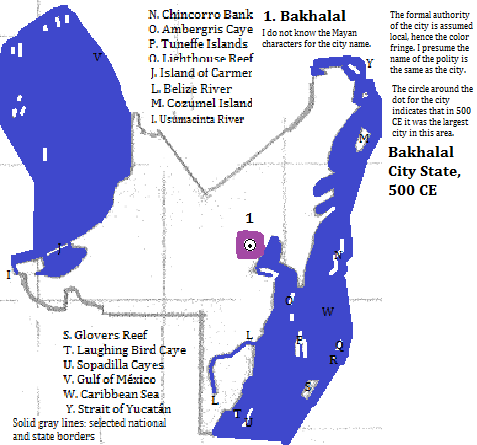
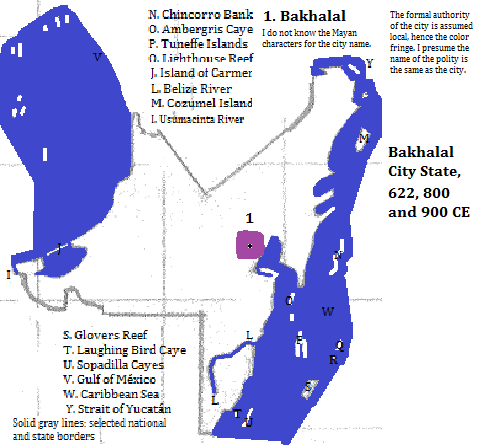
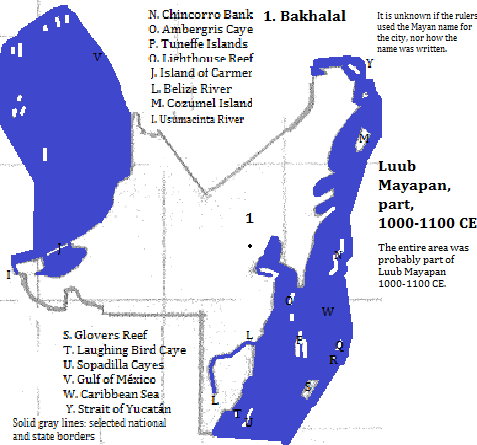
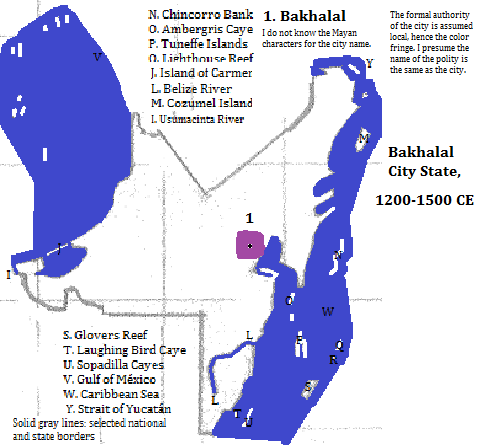
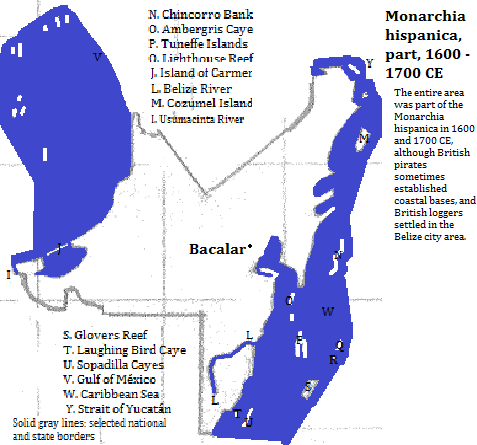
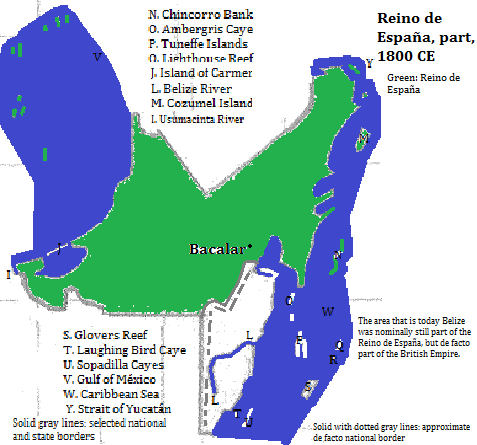
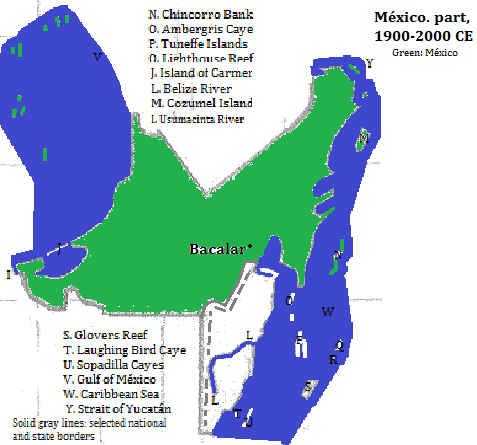
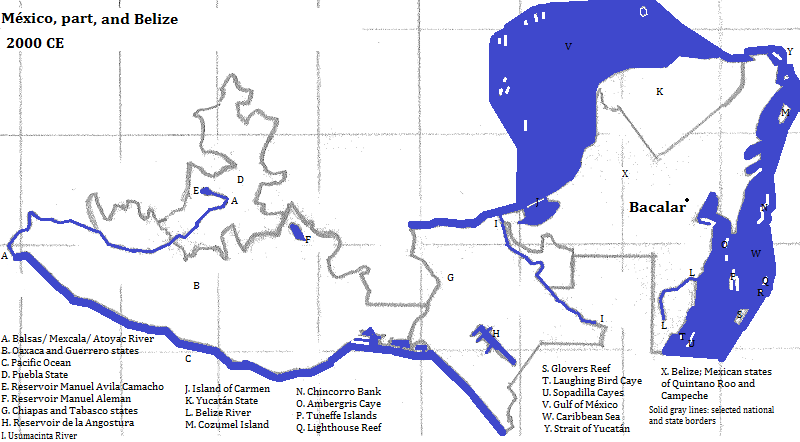
Footnotes
1. https://en.wikipedia.org/wiki/Bacalar, accessed 9/8/2015.
2. I do not know the Mayan characters for its name.
3. The formal military dominance of Teotihuacán around 500 CE was limited to the Petén area, though the cultural influence extended further.
4. Estimate in Tables of the World's Largest Cities, in Tertius Chandler, Four Thousand Years of Urban Growth, 2nd ed. (The Edwin Mellen Press, 1987). It was the largest city in southeast México in 500 CE. In 500 CE, Dimashq had about 50 thousand residents and was larger than Yangchow, which was larger than Merv, which was larger than Kyongju, which was larger than Kavery, which was larger than Ungjin, which was larger than Indrapura, which was larger than Tikal, which was larger than Bakhalal, which was larger than Coptos, which was larger than Tatung, which was larger than Varanasi, which was larger than Balkh, which was larger than Ye, which was larger than Srinagar, which was larger than Istakhr, which had about 40 thousand residents.
5. The name of the polity is presumed to be that of the city.








